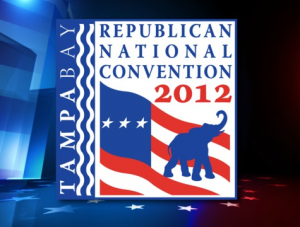 Tonight’s theme here at the Republican National Convention is “We Built It.” This, of course, is in response to President Obama’s absurd assertion that “if you have a small business, you didn’t build that. Someone else built that.” The theme this evening really should set the tone for the entire fall campaign, because it is an excellent contrast of the campaigns’ competing world views.
Tonight’s theme here at the Republican National Convention is “We Built It.” This, of course, is in response to President Obama’s absurd assertion that “if you have a small business, you didn’t build that. Someone else built that.” The theme this evening really should set the tone for the entire fall campaign, because it is an excellent contrast of the campaigns’ competing world views.
President Obama believes in a top-down government-centered economic model of trickle down poverty. Romney and Ryan believe, on the other hand, in the classical view of America as a nation of, for and by the people – that is built from the bottom up and the essence of our classically American way of life.
One of the most misused words in the English language, and one that isn’t well understood, is “capitalist.” As a noun, it is often defined as “a person who uses money to invest in trade and industry…in accordance with the principles of capitalism.” As an adjective, it means “practicing, supporting or based on capitalism.” In either case, the word pertains to the possession and use of money. Our society has, over time, bought into the cultural context that limits capitalism to stock brokers on Wall Street and investment bankers in office towers, but this culturally conditioned concept,m, driven by the progressive left, fails to appreciate the flexibility of the word.
In short, “capitalism” is entirely altered by changing contexts.
Everyone is a capitalist. Every country is capitalistic. And every economy is based on capitalism. This is not some statement of acute ignorance on my part to the fact that there are socialist, and certainly communist, countries in the world where the use of capital is highly restricted. Instead, it is important to understand that saying that someone is a capitalist, or that a country is capitalistic, doesn’t necessarily imply that either supports free-markets and/or freedom.
The word “capital,” which is obviously the root of capitalist, capitalistic and capitalism means, in an economic sense, “a factor of production that is wanted for its ability to help in producing other goods.” In other words, capital is cash. It’s money that is used to invest, create, purchase and to build.
Every person who uses money is a capitalist, and every economy that runs on money is capitalistic. Under this understanding of capitalism, then, every person is a capitalist and every economy is capitalistic. The question, then, is really “who controls the capital?” If everyone is a capitalist, both the big government advocates and the believers in the free market, then any policy discussion regarding the economy must center on who has control over that capital in the marketplace.
Thus, the importance of tonight’s agenda here at the RNC Convention.
In free-market countries, which America has historically been, the people operating in the private sector control the capital. That is why in nations like ours once was, and can be again, people have control over their own economic destiny, because the process of producing and purchasing goods and services is left in the hands of individuals who make decisions about their own lives. Such economic freedom supports and compliments personal freedom, which means that money is a proxy for personal liberty.
Nations that centralize control over the capital in their economies simultaneously centralize control over their peoples’ lives. As such, as the state takes production and purchasing decisions out of the hands of the people, they also take liberty away from individuals.
That’s why it’s so critical that America change course this November. If money is a proxy for personal liberty, then our liberties are fading fast. From billion dollar bailouts to trillion dollar stimulus plans, government is making more and more of Americans’ production and purchasing decisions through policies put in place by bureaucrats and political appointees.
No nation has ever maintained political and religious liberty that has lost economic liberty. That’s why, in order to be consistent conservatives, we must comprehend the inseparable nature of economic arguments and moral arguments. Economics is a moral issue; morality cannot be separated from economics any more than it can be from social policy proposals. In every case in each category some moral value will prevail, and the outcome will determine what kind of country we have, and what kind of economy we build.
In order to “restore the America we love,” we must restore personal prerogative and personal responsibility to all Americans as it pertains to their production and purchasing decisions. In so doing, we will become free-market capitalists, which is infinitely preferable to socialist capitalists, which we now know is not an oxymoron.
Everyone is a capitalist and every society is capitalistic, thus freedom will flourish in those societies that leave the control over capital to the people who earned it.




